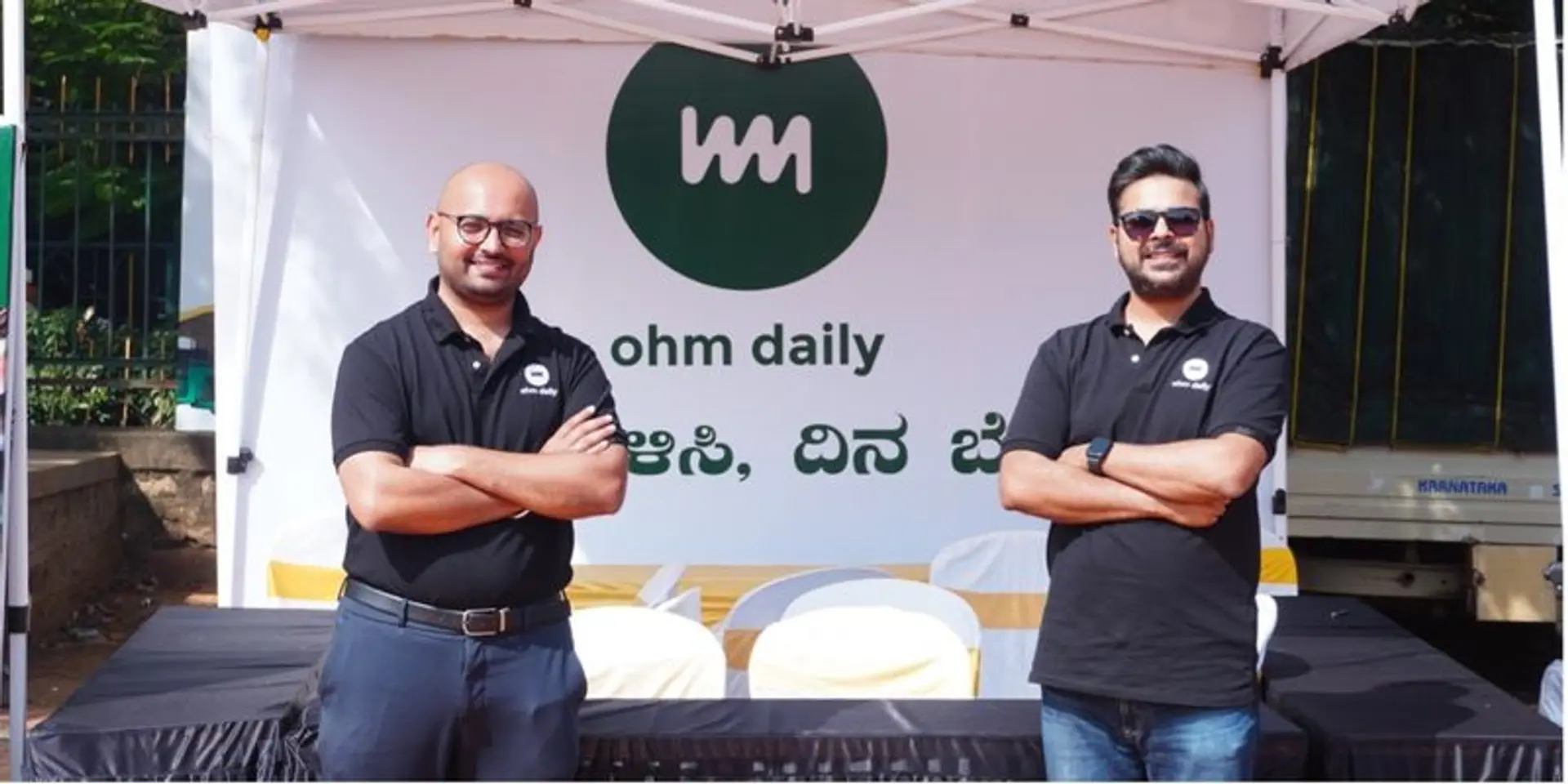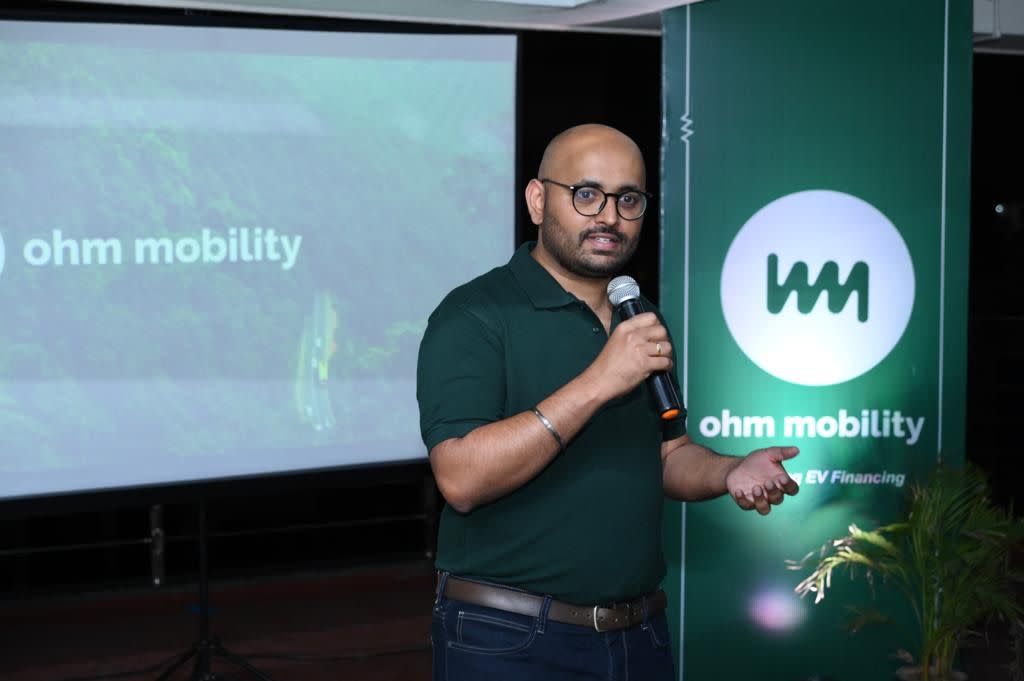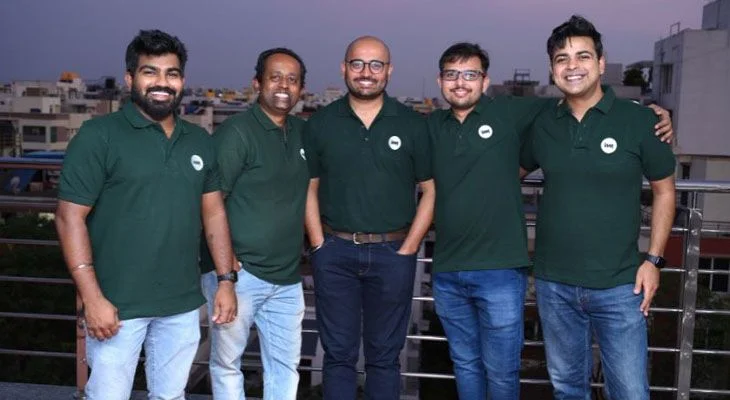Co-founder and CEO Nikhil Nair of Ohm Daily (formerly Ohm Mobility) announced in a heartfelt note that the startup is closing after five years of navigating India’s electric mobility and financial inclusion landscape. Although the team was unable to come up with a scalable and sustainable model, their journey leaves behind important lessons and a legacy of impact for gig workers and EV drivers. In this article, we explore Ohm Daily’s journey, its pivots, partnerships, learnings, and what’s next for the founders.

Credits: Yourstory
From Ohm Mobility to Ohm Daily: A Mission to Empower the Underserved
Founded with a vision to solve financing and infrastructure challenges in India’s electric vehicle (EV) ecosystem, Ohm Mobility made its debut by enabling EV financing for thousands of drivers. The startup quickly built partnerships across the financial and mobility ecosystem, working with institutions like IDFC, EvFin, Bike Bazaar, and Ecofy.
However, by 2024, recognizing the broader challenges of scalability in EV financing, the company rebranded to Ohm Daily and pivoted towards offering micro financial products tailored for daily earners—particularly auto drivers and gig workers. This shift was aimed at addressing the urgent credit needs of those living paycheck to paycheck, often underserved by traditional banks.
Backing from Top Investors and a Strategic Acquisition
Ohm’s early promise was validated by its successful pre-seed funding round of ₹3 crore, led by Antler India, with participation from Blume Founders Fund and high-profile angels like Kunal Shah, founder of CRED. The company also benefited from global exposure as part of the Microsoft for Startups accelerator.
To bolster its fintech backend, Ohm acquired Nagpur-based CloudNBFC, a move that strengthened its loan management capabilities and positioned it to serve financial institutions more effectively.
Despite Pivots and Persistence, Scale Remained Elusive
While Ohm Daily’s vision resonated with impact-driven investors and its products addressed real gaps in the market, the startup struggled to find a repeatable, scalable business model. As Nair wrote in his candid LinkedIn post, “We didn’t crack the model that could scale and sustain.”
The team tried multiple approaches—ranging from EV financing to micro-loans for gig workers—but couldn’t generate the margins and growth necessary for long-term sustainability. Despite this, the company maintained a strong operational ethic, with Nair proudly noting that they paid salaries on time every month, even during tough phases.
Lessons from the Frontlines of Impact Entrepreneurship
In his farewell message, Nair emphasized that the experience, though challenging, was immensely rewarding. “Building a startup has been the most intense, rewarding, and character-shaping experience of my life,” he wrote. He added that the company’s journey gave the team a front-row seat to what works, what doesn’t, and why in the world of impact-led fintech and mobility solutions.
It’s a sentiment echoed by many founders in the ecosystem—sometimes, startups don’t fail due to a lack of effort or vision, but because the model doesn’t evolve fast enough to keep up with real-world dynamics.
What’s Next: A New Venture on the Horizon
Though Ohm Daily is shutting down, the entrepreneurial spark is very much alive. Nikhil Nair and co-founder Nikhil Saigal have already hinted at their next build, one that will carry forward the lessons learned from this journey. “We’re taking everything we’ve learned (especially what not to do!) and putting it to work in our next venture,” Nair said.
Their story is a reminder that the end of one startup is often the beginning of another—wiser, better informed, and even more ambitious.

Credits: Tech in Asia
Final Word
Ohm Daily’s wind-down is a bittersweet moment for India’s startup ecosystem. It reflects the grit, experimentation, and hard choices that come with building in complex, underserved markets. Even though the company didn’t achieve the scale it hoped for, its contributions to financial inclusion and EV adoption—and the lessons it leaves behind—are invaluable.

